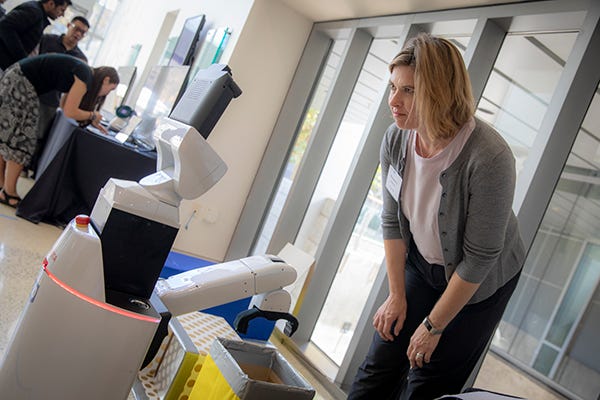In the ever-evolving landscape of healthcare, Artificial Intelligence (AI) has emerged as a beacon of hope and innovation. From early diagnosis to crafting personalized treatment plans, AI’s integration into healthcare is revolutionizing how medical professionals approach patient care. This article delves into the transformative journey of AI in healthcare, highlighting key milestones from its inception to its current and potential future applications.
The Dawn of AI in Healthcare: Early Diagnostics
The initial foray of AI into healthcare was marked by its ability to assist in early diagnosis. Algorithms trained on vast datasets could identify patterns indicative of diseases such as cancer, diabetes, and heart conditions much earlier than traditional methods. This early detection capability has been crucial in improving patient outcomes, where early intervention can significantly alter the disease course.
- Enhanced Imaging Analysis: AI algorithms have surpassed human accuracy in interpreting medical images, such as X-rays and MRIs. These advancements have led to quicker, more accurate diagnoses without the limitations of human fatigue.
- Predictive Analytics: Leveraging historical health data, AI predicts individual risk factors for diseases, allowing for preventative measures before the onset of symptoms.
Personalized Treatment Plans: The Next Frontier
AI’s role has swiftly expanded beyond diagnosis to tailoring personalized treatment plans. By analyzing a patient’s genetic makeup, lifestyle, and disease progression, AI algorithms can recommend customized treatment regimens that offer the best possible outcomes.
- Genomic Sequencing: AI’s ability to sift through genetic data helps identify mutations and link them to effective treatments, paving the way for personalized medicine.
- Treatment Optimization: Through continuous learning, AI systems adjust and recommend changes to treatment plans based on patient responses, minimizing side effects while maximizing efficacy.
Overcoming Challenges: Bridging the Data Divide
Despite its potential, the integration of AI in healthcare has not been without challenges. One significant hurdle is the need for comprehensive, high-quality data to train AI models. Ensuring data privacy while fostering an environment that encourages data sharing for the greater good remains a delicate balance to strike.
The Road Ahead: Expanding Horizons
Looking forward, AI in healthcare promises not just to refine existing processes but to introduce entirely new paradigms of care.
- Predictive Health Monitoring: Wearable technology, powered by AI, could provide real-time health monitoring, predicting and alerting individuals to potential health issues before they become critical.
- Robot-Assisted Surgery: Combining the precision of AI with the expertise of surgeons, robot-assisted surgeries offer the potential for minimally invasive procedures, reducing recovery times and improving surgical outcomes.
- Mental Health Support: AI-driven chatbots and virtual therapists are offering new avenues for mental health support, providing accessible care to those in need.
Conclusion
As we stand on the brink of a new era in healthcare, the potential of AI to redefine patient care is unparalleled. From enabling early disease detection to personalizing treatment plans, AI’s role in healthcare is both transformative and expanding. Embracing this change, while navigating its challenges, will be key to unlocking a future where healthcare is more predictive, personalized, and accessible.





